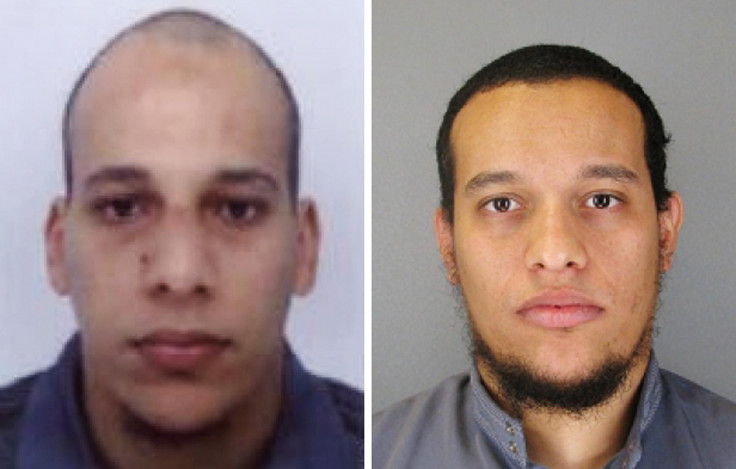Simon Heffer: We rely on intelligence too heavily to thwart terror attacks and ignore basic defences
Nearly a fortnight after the horrific terrorist attacks in France, the nations who see themselves as the most likely targets of Islamic fundamentalism are busy trying to ensure that a repeat is avoided.

The thwarting last week of a potential attack in Belgium suggests both that there is a co-ordinated campaign to intimidate societies throughout the West, and that intelligence has been sharpened up to make at least some security services better aware of it.
But what should really worry the potential victims of terrorism is that, for all the plans to increase vigilance that have been announced by various governments, the level of response remains at what can best be described as the rhetorical.
Leave aside the platitudes from governments about how terrorism will not be allowed to win, and from the majority of Muslims and their community leaders who revile these terrorist acts just as much as anybody else does, and who condemn them unreservedly. Western societies have heard such things for years, and they have become almost meaningless.
Intelligence has a formidable role to play in preventing further attacks: but improving it will, as is already clear from a debate in progress in the United Kingdom, threaten cherished civil liberties. When the attacks happened in France a number of politicians there, including the prime minister, Manuel Valls, spoke of a "war" that had now broken out between France – and by extension the West – and Islamic fundamentalists.
Those who police borders in Europe have much to learn from the way it is done in America, not just to monitor the movement of people, but the movement of weapons
That example of rhetoric is important, especially in the context of restricting or impinging upon civil liberties. In a proper war – and one thinks back to 1939-45 – societies fighting for their lives tend happily to accept restrictions of personal liberties.
In the months ahead, attempts in free Western societies to intercept emails, telephone conversations and other forms of communications in the name of combating terrorism will be accepted for one reason only: if the public in those societies is convinced that the level of danger against which their governments claim to be protecting them is a realistically worse evil than intercepting emails.
Since the second Gulf War in 2003 the British public especially has been sceptical about government claims of impending catastrophe. There is similar scepticism in other European countries, though not in America, where draconian security measures imposed since September 2001 have widespread support.
This scepticism is ironic now, in the aftermath of the Charlie Hebdo attack, and the anti-Semitic murders in a kosher supermarket, both of which displayed a ruthlessness and willingness for martyrdom that made the terrorists who carried it out exceptional. If there is a co-ordinated group of these across Europe, they are indeed exceptionally dangerous.
Interception of their emails might make a tactical difference: it is unlikely to make a strategic one. For that to happen, the governments that feel their states are vulnerable must make a more profound effort to undermine Islamic fundamentalism, rather than relying heavily on intelligence to keep it under control once it has been allowed to flourish. The real challenge is how to stop it flourishing.
On one level, the key is integration. Muslims who live in western societies live in them through choice. The vast majority of them live happily in their adopted societies, contribute to them, and take a live and let live attitude to the majority culture around them. For the most part they are made welcome, though unpleasant manifestations such as the series of marches in Dresden, in Germany, suggest that in some parts of Europe the tide of tolerance may be turning.
But such fears and bigotries are more than countered by men such as Ahmed Aboutaleb, the Mayor of Rotterdam in Holland, who last week told those of his fellow Muslims who didn't like the culture in which they lived to "f*** off home". One of the most urgent things western societies should do is encourage the tens of thousands of others such as Aboutaleb who still feel the need to remain silent that they can, and should, speak out, and make common cause with the wider communities in which they live.

That, too, is more than a question of rhetoric: it is about allowing their children to be educated in schools with western children, allowing their daughters to decide on whether they adopt western ways as they grow older, and on the majority culture embracing them, literally and metaphorically, as equal citizens with the same aims in their adopted country as all its other citizens.
The ghettoisation of Muslims in the Parisian banlieue was not the least reason why the terrorists who shook France to the core were able to be nurtured.
There are other compatible responses, too. Countries that tolerate their nationals financing Islamic extremism – and Qatar is often mentioned in this context – should have uniform sanctions placed on them by western nations until they co-operate in restricting the flow of money.
The IRA sued for peace after 9/11 because America realised that terrorism was less romantic than they had hitherto imagined, and cut off most of the Republicans' money. And those who police borders in Europe have much to learn from the way it is done in America, not just to monitor the movement of people, but the movement of weapons. The basics have been neglected for too long. Any meaningful defence against terrorism starts with them, now.
Dr Simon Heffer is a British commentator and author who has written columns for The Daily Mail, The Daily Telegraph, The Spectator and The New Statesman. He is the biographer of Enoch Powell, Thomas Carlyle and Ralph Vaughan Williams and recently published High Minds: The Victorians And The Birth Of Modern Britain.
© Copyright IBTimes 2024. All rights reserved.






